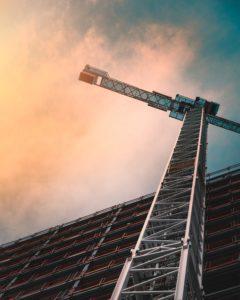 Last year was a challenging year for everyone. But it was genuinely volatile for apartment developers.
Last year was a challenging year for everyone. But it was genuinely volatile for apartment developers.
Nationwide shutdowns in the Spring brought some apartment projects to a halt. Then lumber prices skyrocketed.
Over five months in 2020, the Producer Price Index (PPI) for softwood lumber doubled, jumping 90.9%, according to the National Association of Home Builders (NAHB). In September, softwood lumber prices jumped 28.6%.
That 28.6% increase was the largest monthly increase in the history of both the seasonally adjusted and unadjusted data, respectively, according to NAHB. Before the pandemic, the most significant monthly increase was 5.4% in 2018, less than half of the smallest increase last summer.
For apartment investors, these spikes in lumber prices are worth watching for a couple of reasons. On the one hand, they increased the cost of new single-family homes. In September, the NAHB reported that the sharply higher lumber prices had added about $16,000 to the price of an average new single-family home since mid-April. With home prices already increasing due to strong demand, these kinds of spikes can keep people from buying.
But for some apartment developers, the spikes also stymied new development. In its fourth quarter 2020 special housing report, Marcus & Millichap said that “the surge in price pushed multifamily development costs beyond some budgets, canceling or delaying a number of projects.” CGI, however, due to the efforts of its talented construction management team, locked in lumber prices early on to keep the guaranteed maximum price intact and actually achieved savings on our development projects including our Fedora multifamily development in Los Angeles’ Koreatown.

